Are you tired of feeling stuck in your thought patterns? Do you wish you could come up with innovative solutions to the challenges you face? If so, then learning how to be a better thinker is the key to unlocking your full potential.
After studying the science of thinking for years, researchers have discovered that anyone can train their mind to think more effectively. So today, let’s explore why do you need to be a better thinker, and learn practical strategies to enhance your creativity, improve your decision-making, and solve problems more efficiently by understanding how to become great thinker.
How to Be a Better Thinker
Thinking is a fundamental human skill, but one that many of us could improve upon. Here are some tips on how to become a great thinker –
1. Question your assumptions
The quality of your thinking is often determined by the quality of the questions you ask. We all have preconceived notions and biases that influence our thinking. Make an effort to identify and challenge these assumptions regularly.
Get into the habit of questioning your assumptions, challenging conventional wisdom, and seeking out new ways of looking at the world. Ask yourself – is there evidence to support this belief? Am I looking at this issue objectively?
2. Seek out diverse perspectives
Get input from people with different backgrounds, experiences, and viewpoints than your own. This can help broaden your understanding and expose flaws in your own reasoning.
3. Practice Mindfulness
Mindfulness, the practice of being present and aware in the moment, can help you become a better thinker in several ways. It can improve your focus, reduce mental clutter, and foster a more open and curious mindset. This is how to become a great thinker.
Related: 10 Signs You Are An Independent Thinker
4. Read Widely
Exposure to diverse perspectives and ideas is a surefire way to become a better thinker. Make a habit of reading books, articles, and essays on a wide range of topics, from history and science to philosophy and the arts.
5. Engage in Intellectual Discourse
Talking to others and exchanging ideas is a powerful way to sharpen your thinking. Seek out opportunities to engage in thoughtful discussions, whether it’s with friends, colleagues, or experts in your field.
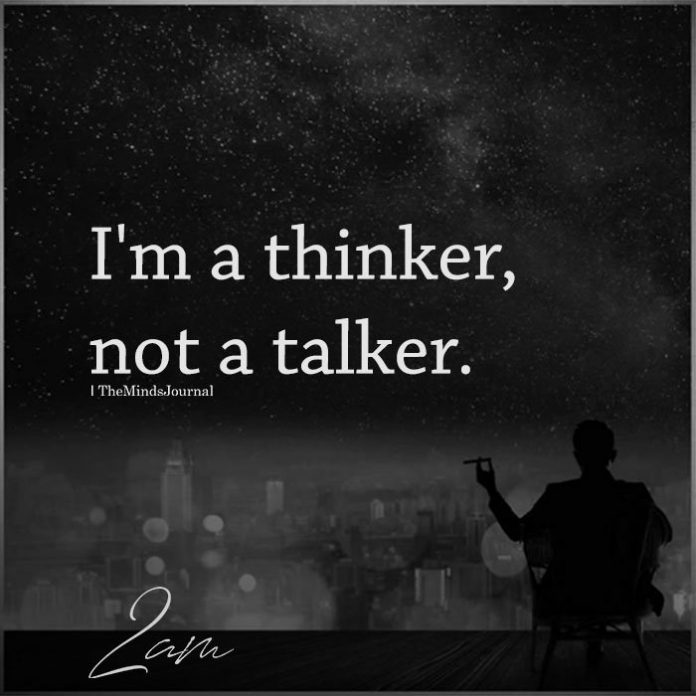
6. Practice Critical Thinking
Critical thinking involves the ability to analyze information, evaluate arguments, and draw informed conclusions. Develop this skill by regularly engaging in activities such as analyzing news articles, evaluating the credibility of sources, and critiquing the reasoning behind different perspectives. This is how to be a better thinker.
7. Experiment and Take Risks
Being a better thinker often involves stepping out of your comfort zone and trying new things. Embrace an experimental mindset, be willing to take calculated risks, and don’t be afraid to fail. This is an excellent tip on how to become a great thinker.
8. Embrace uncertainty
The world is complex, and many problems don’t have clear-cut solutions. Get comfortable with uncertainty in life and avoid the urge to jump to conclusions prematurely.
9. Take time to reflect
Building in regular periods of focused, uninterrupted thought can pay dividends. Use this time to synthesize information, work through problems, and explore new ideas.
10. Learn continuously
Expose yourself to new knowledge, skills, and perspectives through reading, courses, conversations, and experiences. The more you learn, the more raw material you have to work with as a thinker.
11. Monitor your mental processes
Pay attention to how you think – what thought patterns, mental blocks, or biases tend to emerge. Identifying these can help you work to improve them.
Becoming a better thinker takes consistent effort and practice, but the benefits are immense. By cultivating these habits, you can unlock greater creativity, problem-solving abilities, and decision-making skills.
Now that you understand how to become a great thinker, let us dive into understanding why you develop this essential skill.
Why Do You Need to Be a Better Thinker?
At the heart of it, being a better thinker means being able to navigate the complexities of life with more ease and success. In today’s fast-paced, ever-changing world, the ability to think critically and creatively is more important than ever before.
When you learn how to be a better thinker, you’ll be able to:
1. Solve Problems More Effectively
Better thinking solves problems. Whether it’s a personal dilemma or a work-related challenge, the ability to think through problems systematically and find innovative solutions is a game-changer. By honing your thinking skills, you’ll be equipped to tackle even the most complex issues. This is the answer to “why do you need to be a better thinker?”
Related: 6 Traits Of A Deep Thinker
2. Enhance Your Creativity
Better thinking enhances creativity. Creativity is not just for artists and designers – it’s a valuable asset in every aspect of life. By learning how to be a better thinker, you’ll unlock your creative potential and start generating fresh, novel ideas that set you apart from the crowd.
3. Improve Your Decision-Making
From choosing a career path to making financial decisions, the choices we make can have a significant impact on our lives. By developing your thinking abilities, you’ll be able to weigh the pros and cons more effectively and make informed decisions that lead to better outcomes.
Still wondering why do you need to be a better thinker? Then let’s explore these different aspects individually to get a better and clearer understanding.
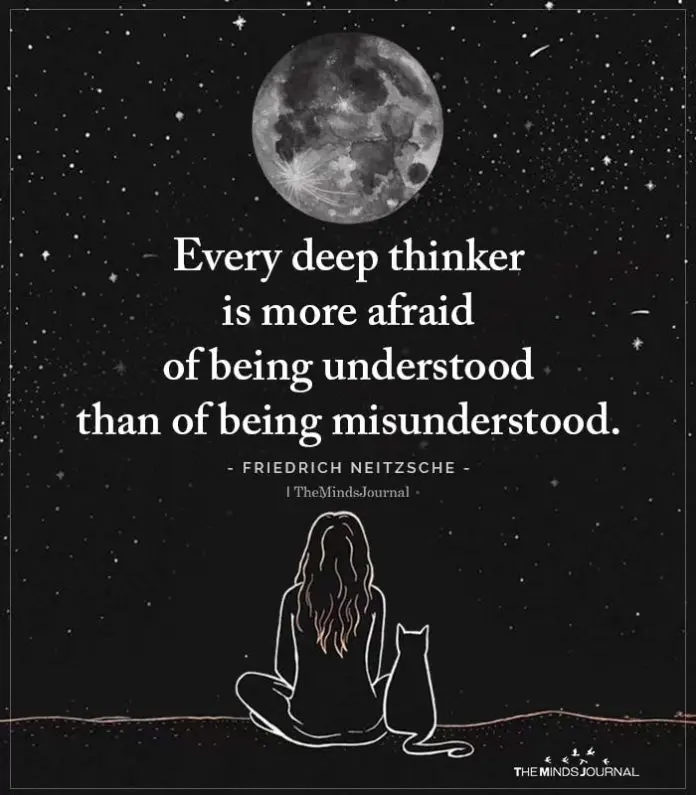
Better Thinking Solves Problems
One of the most practical benefits of learning how to be a better thinker is the ability to solve problems more effectively. When faced with a challenge, it’s easy to feel overwhelmed or to jump to conclusions without fully understanding the underlying issues.
However, by applying a structured, analytical approach to problem-solving, you can break down complex problems into manageable steps and find creative solutions.
Here’s a simple framework to help you become a better problem-solver:
1. Define the Problem
Start by clearly identifying the problem you’re trying to solve. This may seem obvious, but it’s a crucial step that many people skip, leading to ineffective solutions.
2. Gather Information
As better thinking solves problems, collect relevant data, research the issue, and seek out different perspectives. The more information you have, the better equipped you’ll be to make an informed decision.
3. Generate Possible Solutions
Brainstorm a variety of potential solutions, no matter how unconventional they may seem. Don’t censor yourself at this stage – the more ideas you generate, the more likely you are to find a successful solution.
4. Evaluate and Select
Carefully consider the pros and cons of each solution, and choose the one that you believe will be the most effective.
5. Implement and Monitor
Put your chosen solution into action, and be prepared to adjust your approach if necessary. Continuously evaluate the effectiveness of your solution and be willing to try a different approach if needed. This is how better thinking solves problems.
By mastering this problem-solving framework, you’ll be well on your way to becoming a better thinker and tackling even the most complex challenges with confidence.
Better Thinking Enhances Creativity
Creativity is often seen as a rare and elusive trait, reserved for the artistic and the imaginative. However, the truth is that we all have the capacity for creative thinking – it’s just a matter of unlocking and cultivating it.
When you learn how to be a better thinker, you’ll discover that creativity is not just about coming up with novel ideas, but also about making unexpected connections, challenging assumptions, and seeing the world from new perspectives.
Here are some strategies to help you become a more creative thinker:
1. Practice Divergent Thinking
Divergent thinking is the ability to generate multiple, diverse ideas or solutions to a problem. By practicing divergent thinking exercises, such as brainstorming or mind-mapping, you can train your brain to think outside the box and come up with unconventional ideas.
2. Embrace Curiosity
Yes, better thinking enhances creativity. And curiosity is the fuel for creativity. When you approach the world with a sense of wonder and a willingness to learn, you open yourself up to new possibilities and perspectives.
3. Take Breaks and Engage in Leisure Activities
Contrary to popular belief, the best ideas often come when we’re not actively trying to solve a problem. By taking breaks, engaging in leisure activities, and allowing your mind to wander, you can tap into your subconscious and unleash your creative potential.
Related: 20 Things Highly Creative People Do Differently
4. Collaborate with Others
Surrounding yourself with diverse perspectives and engaging in collaborative thinking can stimulate new ideas and challenge your existing assumptions. By learning how to be a better thinker, you’ll be able to contribute to these collaborative efforts in a more meaningful way.
As better thinking enhances creativity, by incorporating these strategies into your daily life, you’ll not only enhance your creativity but also develop a more flexible, adaptive, and innovative mindset.
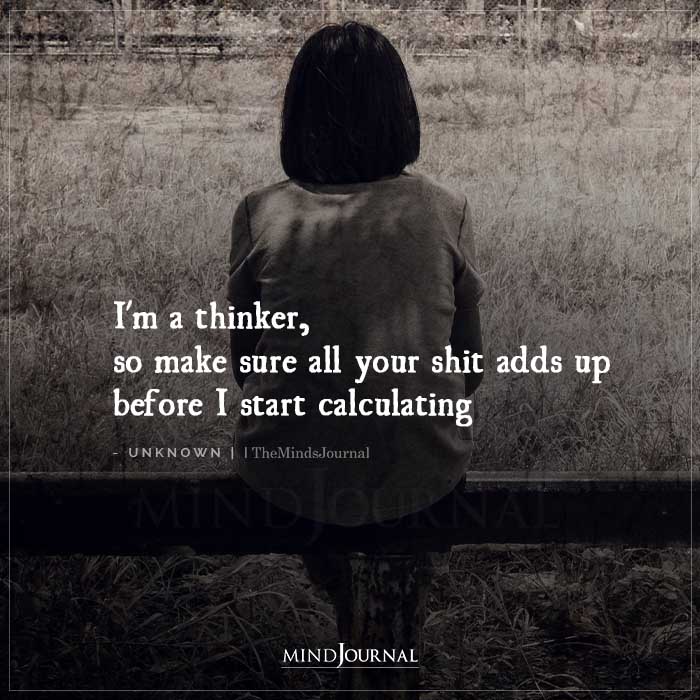
Better Thinking Improves Decision-Making
In today’s fast-paced, information-saturated world, the ability to make sound decisions is more important than ever. Whether you’re faced with a personal dilemma or a professional challenge, the choices you make can have a significant impact on your life and the lives of those around you.
When you learn how to be a better thinker, you’ll develop the critical skills needed to make more informed, rational, and effective decisions. Here’s how:
1. Identify Your Biases
We all have unconscious biases that can influence our decision-making. By becoming aware of these biases, such as confirmation bias or the sunk cost fallacy, you can learn to mitigate their impact and make more objective, well-rounded decisions.
2. Gather and Analyze Relevant Information
As mentioned earlier, gathering relevant information is a crucial step in effective problem-solving. When it comes to decision-making, this step is equally important. By thoroughly researching your options and considering multiple perspectives, you’ll be better equipped to make an informed choice.
3. Weigh the Pros and Cons
Once you’ve gathered the necessary information, take the time to carefully weigh the potential benefits and drawbacks of each option. This will help you make a more balanced and well-reasoned decision.
4. Embrace Uncertainty
In an ever-changing world, there will always be an element of uncertainty in the decisions we make. By learning to be comfortable with ambiguity and accepting that there may not always be a “perfect” solution, you’ll be able to make decisions with more confidence and resilience.
5. Learn from Your Mistakes
Even the best thinkers and decision-makers make mistakes. The key is to approach these mistakes as opportunities for growth and learning, rather than dwelling on them or beating yourself up. By reflecting on your choices and adjusting your approach accordingly, you’ll become an even better thinker and decision-maker over time.
By mastering these strategies, you’ll not only improve your decision-making skills but also develop a more thoughtful, deliberate, and adaptable mindset – all of which are essential for navigating the complexities of modern life.
Related: 8 Signs You Are A High Level Thinker: Unlocking The Power Of Your Mind
Takeaway
In a world buzzing with information and constant distractions, learning how to be a better thinker is not just crucial, but this superpower can actually transform your life. By embracing curiosity, questioning assumptions, and honing critical thinking, you’re setting yourself up for a richer, more insightful life.
Remember, it’s not about having all the answers, but about being brave enough to ask the right questions. So go ahead, challenge your mind, and watch how your perspective—and your world—transforms.
Happy thinking!
Frequently Asked Questions (FAQs):
How to make thinking better?
Enhance thinking by staying curious, questioning assumptions, practicing mindfulness, reading widely, and engaging in reflective and critical thinking.
Are good thinkers born or made?
Good thinkers are made through continuous learning, practice, experience, and developing habits of critical thinking and open-mindedness.
How do great thinkers think?
Great thinkers analyze deeply, question assumptions, seek diverse perspectives, remain curious, and maintain an open mind toward new ideas.
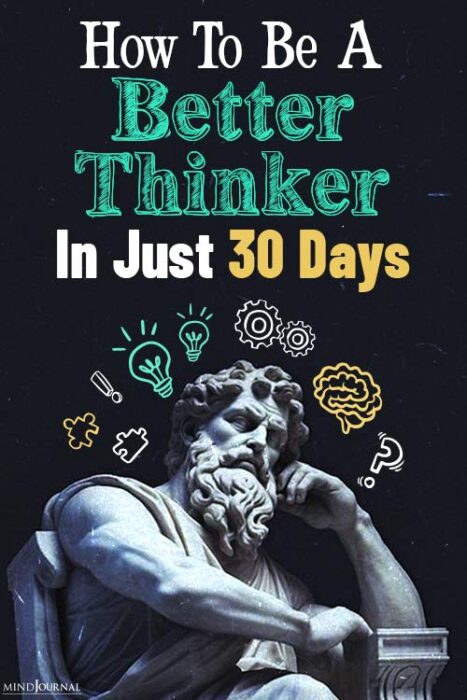
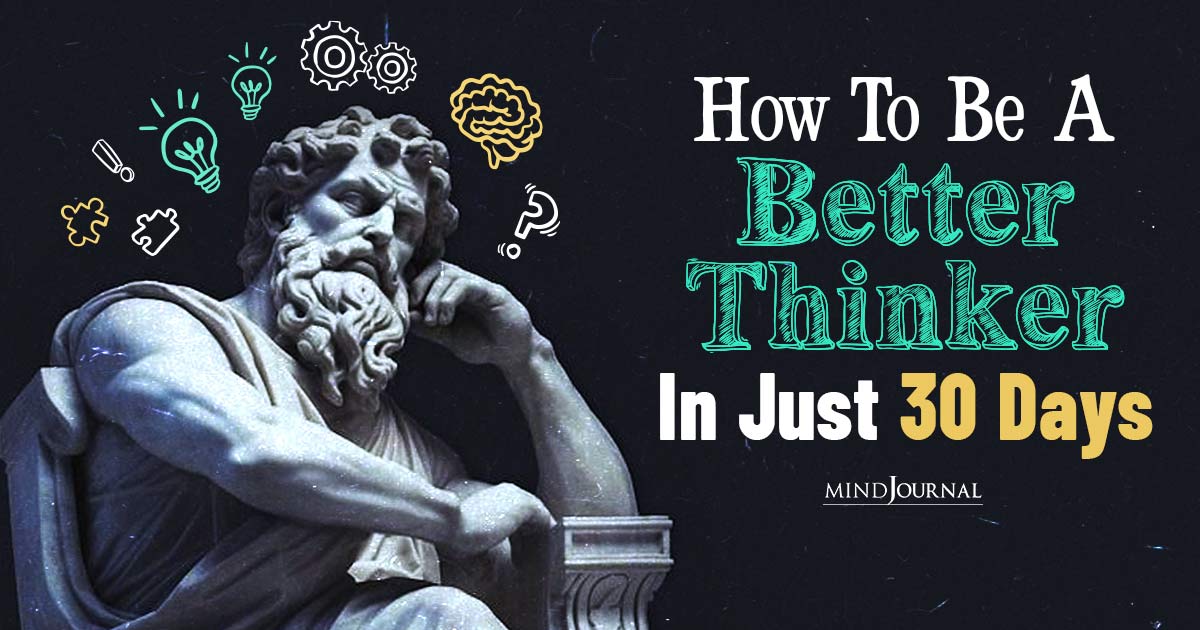







Leave a Reply
You must be logged in to post a comment.